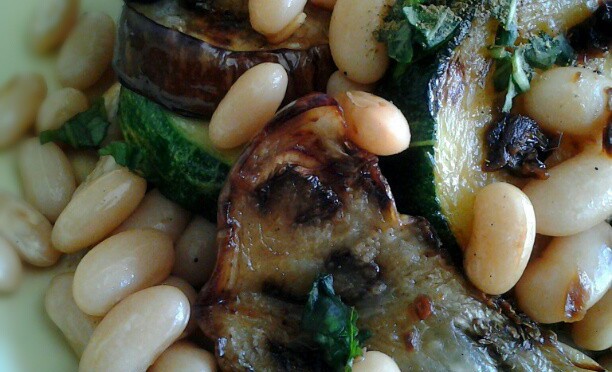The Mediterranean Diet, a diet rich in fruits, vegetables, olive oil, moderate wine consumption, et cetera, has been found to possess

cardiovascular benefits. Exactly how these heart-healthy benefits come to be is not exactly known, though there are many possible scenarios.
One such example is the functionality of the endothelium (the cells that line the blood vessels). It is known that poor endothelial function is linked to increased risk of cardiovascular disease, though its relationship to the Mediterranean diet is not well known.
A new study published in The Journal of Nutrition aimed to examine the relationship between the Mediterranean Diet and endothelial function, as well as possible effects on low-grade inflammation, another problem that has been linked to poor cardiovascular health.
557 adults (aged 59.6 +/- 6.9years) with increased risk for cardiovascular disease were recruited for this study.
Diet information was collected via self-reported questionnaire.
The following indicators for endothelial health were measured for each participant and taken at the beginning of the study, and again after 7 years: von Willenbrand factor, soluble vascular cell adhesion molecule 1, soluble endothelial selectin, soluble thrombomodulin, and soluble intercellular adhesion molecule 1.
The following indicators for low-grade inflammation were measured for each participant and taken at the beginning of the study, and again after 7 years: C-reactive protein, serum amyloid A, interleukin-6, interleukin-8, tumor necrosis factor α, and soluble intercellular adhesion molecule 1.
Other information collected and/or measured included: sex, glucose metabolism, energy intake, BMI, physical activity, alcohol consumption, and smoking habits.
Important Findings:
- Higher consumption of fish was associated with better endothelial function after 7 years.
- Total consumption of vegetables, fruit, alcohol, dairy, or meat had no effect on endothelial function after 7 years.
- There were no associations between the Mediterranean diet, or component there-in, and low-grade inflammation after 7 years.
- Higher consumption of lean fish, raw vegetables, and fewer dairy products were associated with better endothelial function after 7 years.
- Higher consumption of fresh fruit, poultry, fewer high-fat dairy products, and moderate consumption of wine was associated with less low-grade inflammation.
The results of this study indicate that adhering to the Mediterranean diet, specifically increased consumption of lean fish, raw vegetables, moderate consumption of wine and low consumption of dairy products are associated with better

endothelial function and lower low-grade inflammation in adults with a high risk of cardiovascular disease.
These results indicate that endothelial function and inflammation may be at least one of the explanations why those adhering to a Mediterranean-style diet have improved cardiovascular health than those consuming other diets.
Source:






![Photo Credit: Content Providers(s): CDC/James Gathany [Public domain], via Wikimedia Commons](http://french-paradox.net/wp-content/uploads/2014/12/Pregnant_woman_eating_french_paradox-198x300.jpg)